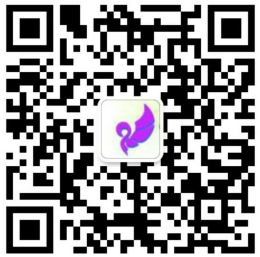代做BIOL 161.001/161.002 Anatomy and Physiology l FALL 2024代做留学生SQL语言程序
- 首页 >> Web
BIOL_161.001/161.002_ARMSTRONG_FA24
Anatomy and Physiology l
SYLLABUS
FALL 2024
Course Description:
This is the first course of a two-semester sequence introducing human anatomy and physiology.
Topics covered in Human A&PI include homeostasis;anatomic orientation and terminology; molecules of life;cell structure,function,and genetics;histology;the anatomy and physiology of the nervous system;special senses;skeletal system,muscular system,endocrine system and the integumentary system.
Course Learning Objectives:
A Human Anatomy and Physiology course is more than memorizing the structures of the body and their functions.The student's main goal is to comprehensively understand the human body from the gross level (what you can see),through the systemic,organ,tissue,cellular,and molecular levels.By the end of this course,students will be able to demonstrate the following for the body systems and topics covered:
1.Develop and demonstrate a vocabulary of appropriate terminology to effectively communicate information related to anatomy and physiology.
2.Recognize and identify anatomical structures and explain the physiological functions of body systems.
3.Recognize and explain the principle of homeostasis and the use of feedback loops to contro physiological systems in the human body.
4.Use anatomical knowledge to predict physiological consequences,and use knowledge of function to explain the features of anatomical structures.
5.Recognize and explain the interrelationships within and between the different body systems.
6.Apply knowledge of anatomy and physiology to real-world situations,including clinical cases, health and lifestyle. decisions,and homeostatic imbalances,by explaining and justifying your decision.
7.Interpret and explain different types of anatomical images and graphs of physiological data.
General Education Learning Objectives:
This course focuses on two of the General Education Learning Objectives:Key Literacies and Critical and Analytical Thinking.
1.Key Literacies - The ability to identify,interpret,create,communicate and compute using
materials in a variety of media and contexts.Literacy acquired in multiple areas,such as textual, quantitative,information/technology,health,intercultural,historical,aesthetic,linguistic (world languages),and scientific,enables individuals to achieve their goals,to develop their knowledge and potential,to lead healthy and productive lives,and to participate fully in their community and wider society.
2.Critical and Analytical Thinking - The habit of mind characterized by comprehensive exploration of issues,ideas,artifacts,and events before accepting or formulating a conclusion.It is the intellectually disciplined process of conceptualizing,applying,analyzing,synthesizing,and/or evaluating information gathered from,or generated by,observation,experience,reflection, reasoning,or communication,as a guide to belief and action.
Communication and Collaboration:
Please check Emails,Canvas Announcements-and the Chatroom (Chat)(found on the left column of the course homepage)often for weekly updates,hints,and other important reminders from your course professor.Please post your questions to the Chatroom,or email me,as other students (your learning collaborators)may have the same question.
Test &Participation Policy:
·Tests cover material from the textbook readings and lectures. BY PSU Departmental rules
Missed tests will receive a score of O points. By PSU rules:a make-up can only be administered-if your professor receives an email before the testing assignment begins AND the University has approved the reason.F orgetting,oversleeping,vacations,not knowing test open and close times,time zone differences,and/or work scheduling conflicts are NOT PSU sanctioned excuses for missing a test. By PSU rules:Class attendance is MANDATORY,poor or inconsistent class attendance will negatively impact your grade.
· Tests: 5 full-length tests will be a mix of multiple choice,and true/false.They are usually
composed of 50 questions and last for 1 hour.Please inform. familylemployers that you must be available during these times as the test times are non-negotiable
Technology Reliability. To be successful in this course,the student must have access to a reliable computer and Internet.If you do not have these items,you must take online quizzes in the PSU campus computer labs.An internet outage and/or computer crash during a quiz is not university-sanctioned reason for a make-up.Please check the reliability of your technology far before the start time of the quiz to ensure you are prepared and ready to go.
Grading Policy:
5 Tests:Each test =20%of final grade,5×20%=100%
PSU assigned cut-offs for each grade:A=93%,A-=90%,B+=88%,B=83%,B-=80%,C+=78%,
C=70%,D=60%,F<60%
There is no curve or extra credit assignments;this enables you to understand precisely your grade status at every stage in the course.
Final Grade Assessment and Grade Entry:Grades are earned,not negotiated. You receive what you have honestly earned.At the end of the course,the professor will not respond to student emails that tell him to raise a grade to one that was not legitimately earned.Grade falsification is a dishonest academic practice,resulting in grade inflation,undermining the integrity of the grading system,a degradation of the perceived quality of your degree and the reputation of the University.
Final grades will be posted to LIONPATH,not Canvas.The professor will enter the final grades after the last test.If you do not see your grade posted in a few days,please contact the Office of the Registrar as they are responsible for posting the final grade to the student (not the professor).

